Israel-Hamas conflict: Is it right to always side with the weak?
With the world divided on being for or against Israel or Hamas, Chinese academic Zhang Tiankan looks at why the weak are not necessarily in the right during a conflict against the strong, as some would assert.
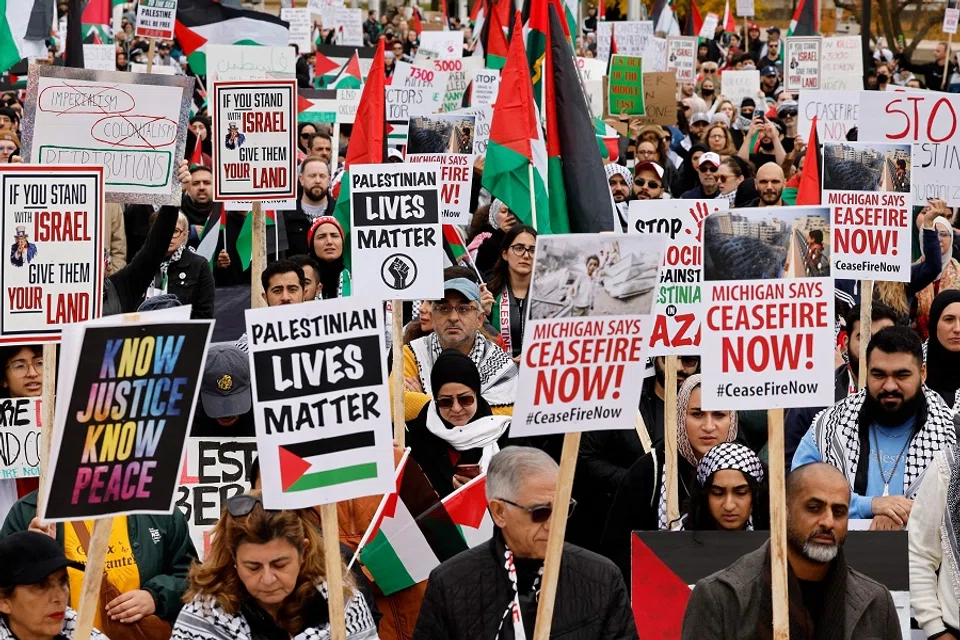
On 7 October, Palestinian militant group Hamas launched a large-scale attack on Israel. Thereafter, different parts of the world and various countries became embroiled in intense conflict, presenting themselves as either pro-Israel, anti-Hamas, or vice versa, with others staying neutral.
In fact, it is inaccurate to call this conflict an Israel-Palestine conflict or war because Palestinian President Mahmoud Abbas has said that Hamas's actions and policies do not represent Palestinian people.
A measure of society's civility
Based on the spillovers of the Israel-Hamas conflict to the rest of the world, the most intense have been in some American universities. Elite colleges such as Harvard University, Columbia University, Yale University, Stanford University and the University of Pennsylvania are all caught up in this whirlwind of controversy, with hostility among students reaching a peak.
On 7 October, the Harvard Undergraduate Palestine Solidarity Committee comprising over 30 Harvard student organisations issued a statement claiming that the Israeli government is "entirely responsible for all unfolding violence". It asserted that millions of Palestinians in Gaza have been "forced to live in an open-air prison" and that recent events "did not occur in a vacuum".
In the context of a civilised society, this means that the strong must help the weak and not bully them.

It added: "Israeli violence has structured every aspect of Palestinian existence for 75 years." The statement urged Harvard University to "take action to stop the ongoing annihilation of Palestinians".
Not only did the Harvard student organisation fail to condemn Hamas's violent attack, it also made an obvious causal attribution: it is all Israel's fault because Israel is strong and Hamas and Palestine are weak - reason will always side with the weak.
The uniquely human traits of empathy and compassion, as well as sympathy for the weak, have led to the theory that reason always sides with the weak. In the context of a civilised society, this means that the strong must help the weak and not bully them. The ability to do so is even used to measure a society's level of civility, thus bringing forth concepts like the "Great Unity" (世界大同, a Chinese utopian vision of the world in which everyone and everything is at peace) and "All men are created equal".
... no matter what happens in the world, facts must come first, followed by the judgement of right and wrong, and finally attitudes and positions - stances do not take precedence.
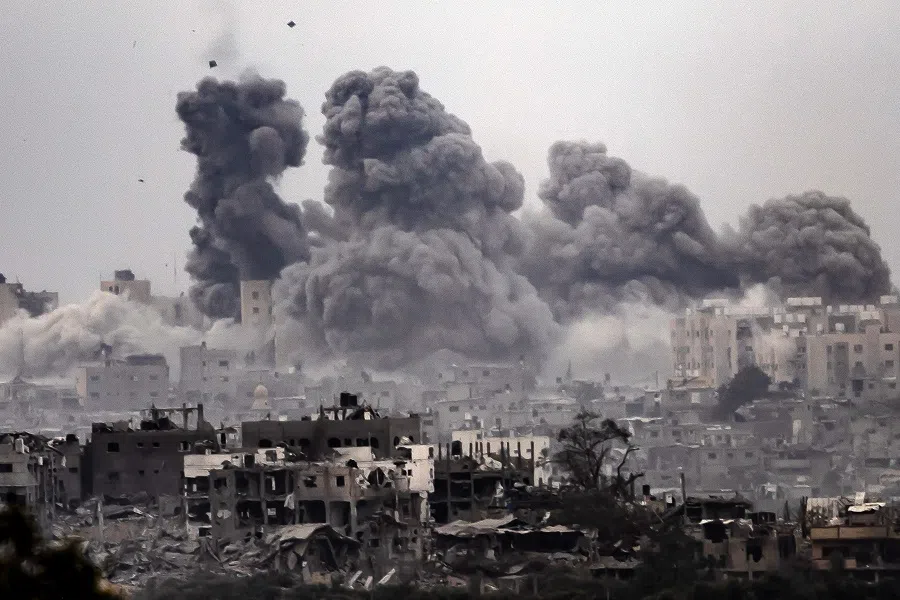
These notions are then reinforced through the quotes of notable people, in particular Japanese writer Haruki Murakami's acceptance address when he was awarded the Jerusalem Prize in 2009: "Between a high, solid wall and an egg that breaks against it, I will always stand on the side of the egg. Yes, no matter how right the wall may be and how wrong the egg, I will stand with the egg."
Such opinions could become the basis for supporting the notion that the weak is always justified and always right. Thus, the perception that "Black Lives Matter" is always right also exists in the US.
Judging by universal values
As long as high walls and eggs exist, one should not stand with the high wall even if the egg is wrong - this is Murakami's stance, and one that has had widespread influence.
However, no matter what happens in the world, facts must come first, followed by the judgement of right and wrong, and finally attitudes and positions - stances do not take precedence. This was already affirmed by Black civil rights leader Martin Luther King, Jr. in his speech "I Have a Dream": "I have a dream that my four little children will one day live in a nation where they will not be judged by the colour of their skin but by the content of their character."
... it may not necessarily be a truly rational choice to always stand with the egg [the weaker side], especially when the egg has turned "rotten" or transformed into a metal egg or a bomb.
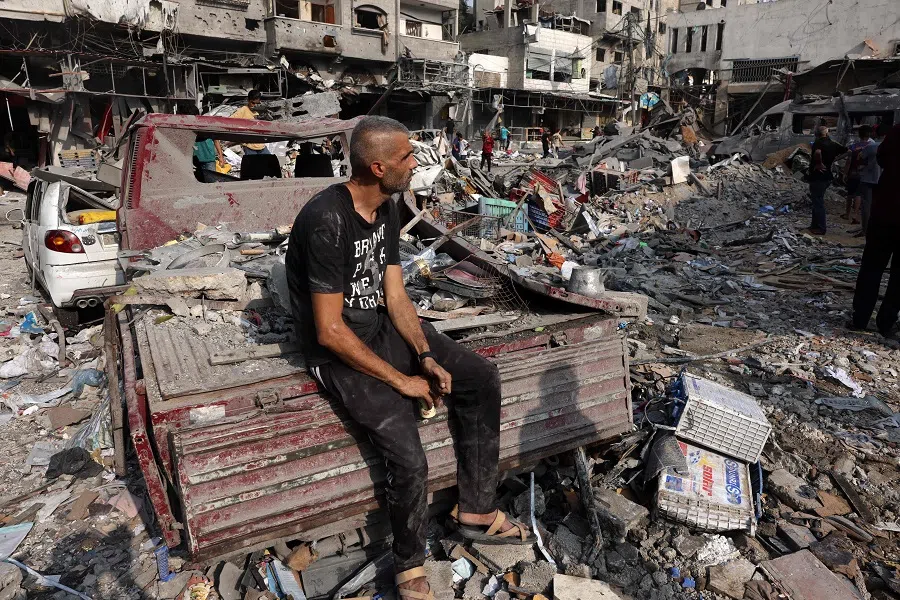
Judging one by their character is to judge whether their behaviour is aligned with the universal values of a society or civilisation, and not assuming that they are always right or asking people to stand with them just because they have dark skin. Thus, it may not necessarily be a truly rational choice to always stand with the egg, especially when the egg has turned "rotten" or transformed into a metal egg or a bomb.
Haruki's metaphor of the egg and the high, solid wall compares bombers, tanks, rockets, white phosphorus shells and machine guns to the high, solid wall. Meanwhile, the unarmed civilians who are crushed, burned and shot by them are the eggs. But the egg is no longer just an egg; it has become a bomb.
Hamas's thousands of rocket missiles and 155mm calibre shells have led the charge on Israel, and in a surprise attack no less. Automatic rifles, machine guns, bazookas, mortars, recoilless rifles, anti-tank missiles, anti-aircraft missiles, drones and more have been deployed to indiscriminately attack and kill Israeli civilians and military.
What is especially harrowing is Hamas's killing of Israeli babies and elderly, burning their corpses, tearing the clothes off of women, and harassing and raping them - these cannot be explained simply by terrorist ideology or an inhumane act, it is a massacre and misanthropy.
Fighting violence with violence
Yet those from the pro-Hamas camp would supply a radical explanation that "the dead Israeli civilians are accomplices", and that as Jews, they deserve such treatment, as the Israelis have treated the Palestinians with violence for centuries.
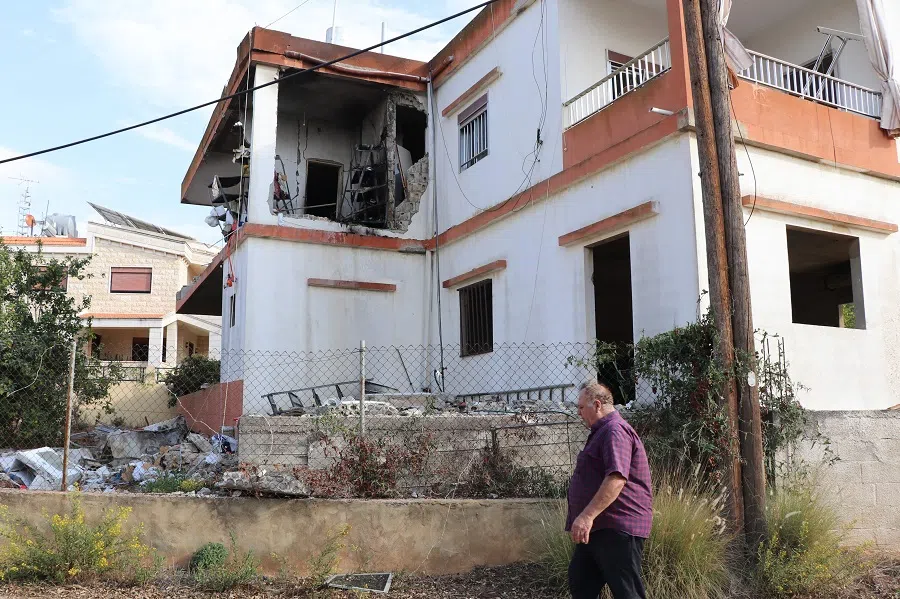
The logic of fighting violence with violence might be applicable when fighting injustice with justice, but to make innocent civilians the scapegoats (putting aside whether Israel was in fact guilty in the past) is most certainly not how a civilised society should act. This is also forbidden by international law; a host of behaviours are categorised as war crimes and crimes against humanity, including intentional killing of civilians, intentional killing of prisoners of war, torture, taking of hostages, wanton destruction of civilian property, wartime sexual violence, plundering, recruiting child soldiers, genocide and ethnic cleansing.
Of course, if the Israeli military acted in this manner, they would also be subjected to prosecution for war crimes and crimes against humanity.
The series of actions Hamas undertook against Israel can undoubtedly be classified as war crimes or crimes against humanity, and warrants prosecution and trial in court. Such crimes can never be justified and should be condemned. There is never, ever a good reason to cheer and unquestioningly endorse such crimes. Of course, if the Israeli military acted in this manner, they would also be subjected to prosecution for war crimes and crimes against humanity.
The metaphorical transformation of the egg is also a reflection of how the weaker side has long undergone change, becoming an egg that even its Arabic brothers do not like and are unwilling to help. On 17 October, Jordan's King Abdullah II announced that Jordan and Egypt will not accept Palestinian refugees from the Gaza Strip.
A look back at history would reveal that Jordan suffered from great civil unrest when it took in Palestinian refugees in the past, almost losing its sovereignty in the process. Lebanon, dubbed the Pearl of the Orient and Paris of the East when it had accepted Palestinian refugees previously, not only faced annihilation but is now dragged into the conflict with no clear path out.
No matter how deep the historical resentment or how complex and convoluted the situation, the heart of the matter lies in adherence to the principle of "live and let live", as well as the United Nations Resolution 181 partition plan to let Israel and Palestine coexist peacefully as two separate states.
Left-wing Israeli forces attempted to compromise in the past, but extremist forces like Hamas seeks to wipe Israel off the map entirely. Hamas is not the only group that has such a thought. But if this keeps up, it would be a nightmare that one can never wake from, and the Middle East would not have another day of peace - unless there is a significant change in the egg's and the high wall's stance, along with the extent and speed at which this change happens.
This article was first published in Lianhe Zaobao as "鸡蛋总比高墙有理吗?".
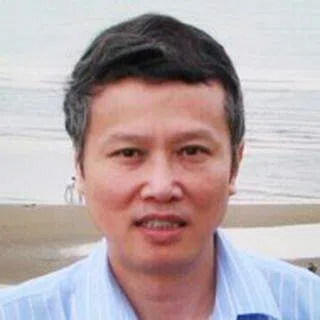


![[Video] George Yeo: America’s deep pain — and why China won’t colonise](https://cassette.sphdigital.com.sg/image/thinkchina/15083e45d96c12390bdea6af2daf19fd9fcd875aa44a0f92796f34e3dad561cc)
![[Big read] When the Arctic opens, what happens to Singapore?](https://cassette.sphdigital.com.sg/image/thinkchina/da65edebca34645c711c55e83e9877109b3c53847ebb1305573974651df1d13a)
